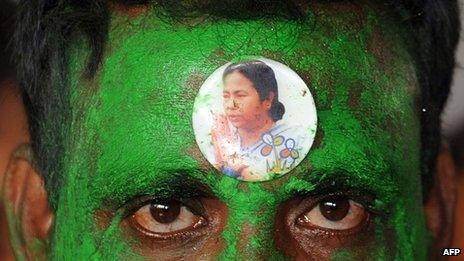Why good economics can make for bad politics
- Published
- comments

Good economics can sometimes make for bad politics.
India's beleaguered Congress-led ruling coalition in Delhi is discovering that, in its attempts to push through major economic reforms.
On Tuesday evening, its unpredictable ally the Trinamool Congress pulled out from the government over its plans to open the retail sector to global supermarket chains and other economic reforms.
An intriguing lack of political consensus and informed public debate over the reforms, and an intensely fragmented polity, has scuppered attempts at key reforms - upgrading the country's archaic labour laws and eliminating non-essential subsidies, are two standout examples.
The near-complete breakdown in cooperation between the two main national parties - the Congress and the main opposition Bharatiya Janata Party - hasn't helped matters.
Most regional parties have remained local in their outlook and have been found wanting in articulating their positions on the issues that will determine the future of India: What direction should the economy take? What should be India's place in the world?
So India's politics, many believe, has often been reduced to brinkmanship, bargaining and grabbing concessions from the state. Lack of inner-party democracy means that the politics of most parties - including the Congress - is largely held hostage to a bunch of regional satraps and their families.
So what could happen now that the Congress government has become a minority one?
Analysts point to a number of scenarios: the government can roll back the reforms (unlikely); continue to run a minority government like the one run by the late prime minister PV Narasimha Rao with the support of a couple of regional parties from outside (likely); the opposition pushes for a confidence vote against the government in parliament (possible); and the Congress decides to go for broke and call an early election (highly unlikely).
Some people say India is already staring at an early election. My hunch is that the Congress government will continue to limp along with the support of some regional parties and independents until the summer of 2014, when the next elections are due.
It will be an enfeebled, lameduck government, prone to pressure from parties who are supporting it. Not a very happy picture, but when did good politics make for good economics?